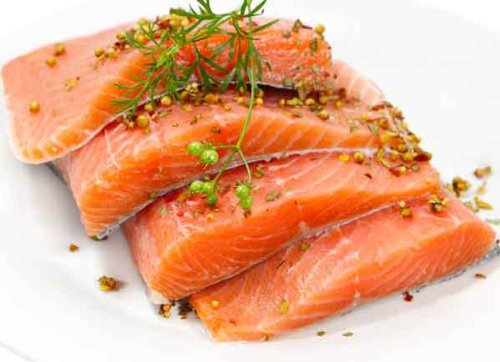10 Tips to Meet Your Protein Goals After Surgery

Chew your food thoroughly
Digestion begins in the mouth. Your saliva contains important enzymes that begin to break down food in your mouth, so it will be less work on your stomach. Ideally, you want to chew your food until it reaches applesauce-like consistency. Chewing more thoroughly also helps you to slow down. For many of us, it is a habit to take a bite, chew a couple of times and then swallow it down with a chug of water. But after bariatric surgery, you can no longer do that so it is even more important to chew your food.
Use a baby spoon
While it is important to chew your food thoroughly it also helps to take small bites of your food. Using a baby spoon or chopsticks may slow you down and regulate your bite sizes. If you are having a difficult time tolerating chicken, try smaller bites before giving up. When you eat smaller bites, less food will reach your stomach all at once and it may prevent nausea.
Eat every 2-3 hours
Since you can no longer tolerate large portions at a time, it is important to eat small amounts of food every two to three hours. This will give you more opportunities to eat enough protein. You can have protein drinks or eat a high protein snack like string cheese.
Eat protein at every meal
By building your meals around protein you will be more likely to hit your daily protein goals. Every meal or snack is an opportunity to help meet your daily protein goals.
Pack high protein snacks
Having high protein snacks on hand is key to meeting your daily protein goals. Examples include cottage cheese, string cheese, tuna, hard boiled egg, and sliced deli meat. These are portable snack items that you can store in the fridge at work or in a thermal lunch container. For more ideas on what foods to eat after bariatric surgery, please be sure to check out my Top 10 Dietitian-Approved Foods to Eat After Bariatric Surgery.
Experiment with different types of protein
Everyone has different tolerances after bariatric surgery. I have met some people who never had any issues with food, while others need to avoid certain foods for a period of time. Don’t be afraid to experiment with different types of protein. After surgery your taste preferences may change, so be willing to try foods that you previously didn’t like. If you cannot tolerate chicken then try yogurt. If you don’t like yogurt then try white fish. For other ideas on different protein sources to try download my free guide, Top 10 Dietitian-Approved Foods to Eat After Bariatric Surgery.
Eat protein first
The cardinal rule after surgery is to eat your protein first. This may seem counterintuitive because you may have been programmed to eat your vegetables first. But after surgery, your pouch size is so small that you need to make sure to fill it with protein first because you may fill up quickly. Yes, vegetables are important too. but you will be able to eat more of them as your pouch size expands. In the meantime, please make sure to take your multivitamins.
Add PB2 to protein drinks
PB2 is a peanut butter powder, but it is lower in fat and calories than your traditional peanut butter. Although peanut butter can be a healthy source of fat, it’s usually not recommended right after bariatric surgery due to its high calorie and fat content. PB2 can be a flavorful addition to your protein drinks, smoothie or yogurt and be a sneaky way to get more protein.
Use protein drinks
Including protein drinks in your diet is essential to meeting your protein needs in the first few months after surgery. Even if you ate protein at each meal you would likely not be able to meet your protein goals because of your new pouch size. Most surgery centers recommend using a protein drink during the first 6 months after surgery. As your pouch size expands you will be able to get most of your protein from food and reduce your protein drink intake. Experiment with different protein drinks to identify which one you tolerate best. Although whey isolate is usually recommended if you cannot tolerate it then try a different one such as egg white protein.
Use Quinoa as your grain
If you have started to include grains in your diet then quinoa can be a good choice after surgery. It is higher in protein than other grains and high in fiber. You can have a small amount with a stir-fry or add to soups.
Please join my Facebook group if you would like to receive Dietitian-Approved Bariatric Recipes on your weight loss surgery journey.


killilj 1
Posted
killinghamlj@gmail.com
Share this comment
Link to comment
Share on other sites